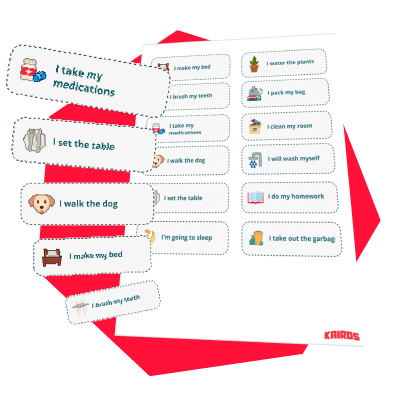Effective therapy activities for children with ADHD
Children with ADHD often benefit from structured and engaging activities that help improve their focus, attention, and self-regulation skills. This blog explores various therapy activities that parents can incorporate into their child’s routine to support their development.
Understanding the benefits of therapy activities
Therapy activities can provide numerous benefits for children with ADHD:
- Improved Focus and Attention: Structured activities help children practice sustaining attention.
- Enhanced Self-Regulation: Activities that require turn-taking and following rules can improve impulse control.
- Increased Self-Esteem: Successfully completing tasks boosts confidence and self-esteem.
Children with ADHD often face unique challenges that can impact their cognitive development. As a parent, it’s essential to understand these challenges and implement strategies to support your child’s cognitive growth. This blog explores effective methods to enhance cognitive development in children with ADHD, fostering their academic and personal success.
Understanding cognitive development in ADHD
Cognitive development involves various mental processes, including attention, memory, problem-solving, and executive functioning. Children with ADHD may struggle with:
- Attention Difficulties: Maintaining focus on tasks can be challenging.
- Working Memory Deficits: Holding and manipulating information in mind may be difficult.
- Impulsivity: Difficulty in delaying gratification and controlling impulses.
- Executive Functioning Issues: Challenges in planning, organizing, and completing tasks.
Consult our free Guide for more parenting support !
Strategies to support cognitive development
Structured routines and schedules
Creating structured routines helps children with ADHD manage their time and tasks more effectively. Consistency provides a sense of security and predictability.
- Daily Schedules: Develop a daily schedule that includes specific times for homework, chores, physical activities, and relaxation. Visual schedules can be particularly helpful.
- Morning and Evening Routines: Establishing consistent morning and evening routines can improve organization and reduce anxiety.
Access Kairos for Free ! An app that will support routine management for you and your child.
Enhancing working memory
Improving working memory can help children with ADHD better retain and use information.
- Memory Games: Engage your child in memory games and activities that challenge their working memory, such as matching games, puzzles, and card games.
- Chunking Information: Break down information into smaller, manageable chunks. For example, divide homework tasks into smaller steps and tackle them one at a time.
- Visual Aids: Use visual aids like charts, diagrams, and color-coded notes to help your child remember important information.
Developing executive functioning skills
Supporting the development of executive functioning skills is crucial for children with ADHD.
- Task Lists: Create task lists to help your child plan and organize their activities. Use checklists to track completed tasks.
- Time Management Tools: Use timers and alarms to help your child manage their time effectively. Visual timers can provide a clear representation of time passing.
- Goal Setting: Teach your child to set realistic and achievable goals. Break down larger goals into smaller, actionable steps and celebrate their progress along the way.
Find out how Kairos was clinically validated !
Encouraging physical activities
Physical exercise has been shown to improve cognitive function and reduce ADHD symptoms.
- Regular Exercise: Encourage your child to engage in regular physical activities, such as swimming, biking, or playing sports. Aim for at least one hour of physical activity each day.
- Mindfulness and Relaxation: Introduce mindfulness exercises and relaxation techniques, such as deep breathing, yoga, and meditation, to help your child manage stress and improve focus.
Utilizing educational technology
Educational technology can be a valuable tool for enhancing cognitive development in children with ADHD.
- Interactive Apps like Kairos can improve your child skills development and yours !
Positive reinforcement and motivation
Using positive reinforcement can motivate children with ADHD and encourage desired behaviors.
- Reward Systems: Implement a reward system where your child earns points or tokens for completing tasks and displaying positive behaviors. See how Kairos uses gamification and avatars as positive reinforcement.
- Immediate Praise: Provide immediate praise and positive feedback for effort and achievement. Highlight specific behaviors, such as staying focused during homework or completing a task independently.
Collaborating with teachers and professionals
Collaboration with teachers and professionals is essential for supporting your child’s cognitive development.
- Regular Communication: Maintain open communication with your child’s teachers to discuss their progress and any challenges they may face. Share strategies that are effective at home and seek advice for school-related issues.
- Seek Professional Support: Consider seeking support from professionals, such as therapists, psychologists, or occupational therapists, who specialize in working with children with ADHD. They can provide targeted strategies and interventions to support cognitive development.
Conclusion
Supporting cognitive development in children with ADHD requires a combination of structured routines, memory-enhancing activities, executive functioning strategies, physical exercise, educational technology, positive reinforcement, and collaboration with professionals. By implementing these strategies, parents can help their children improve their cognitive skills, manage ADHD symptoms, and achieve academic and personal success.
For more resources and expert advice, explore our Free Parenting Guide !
